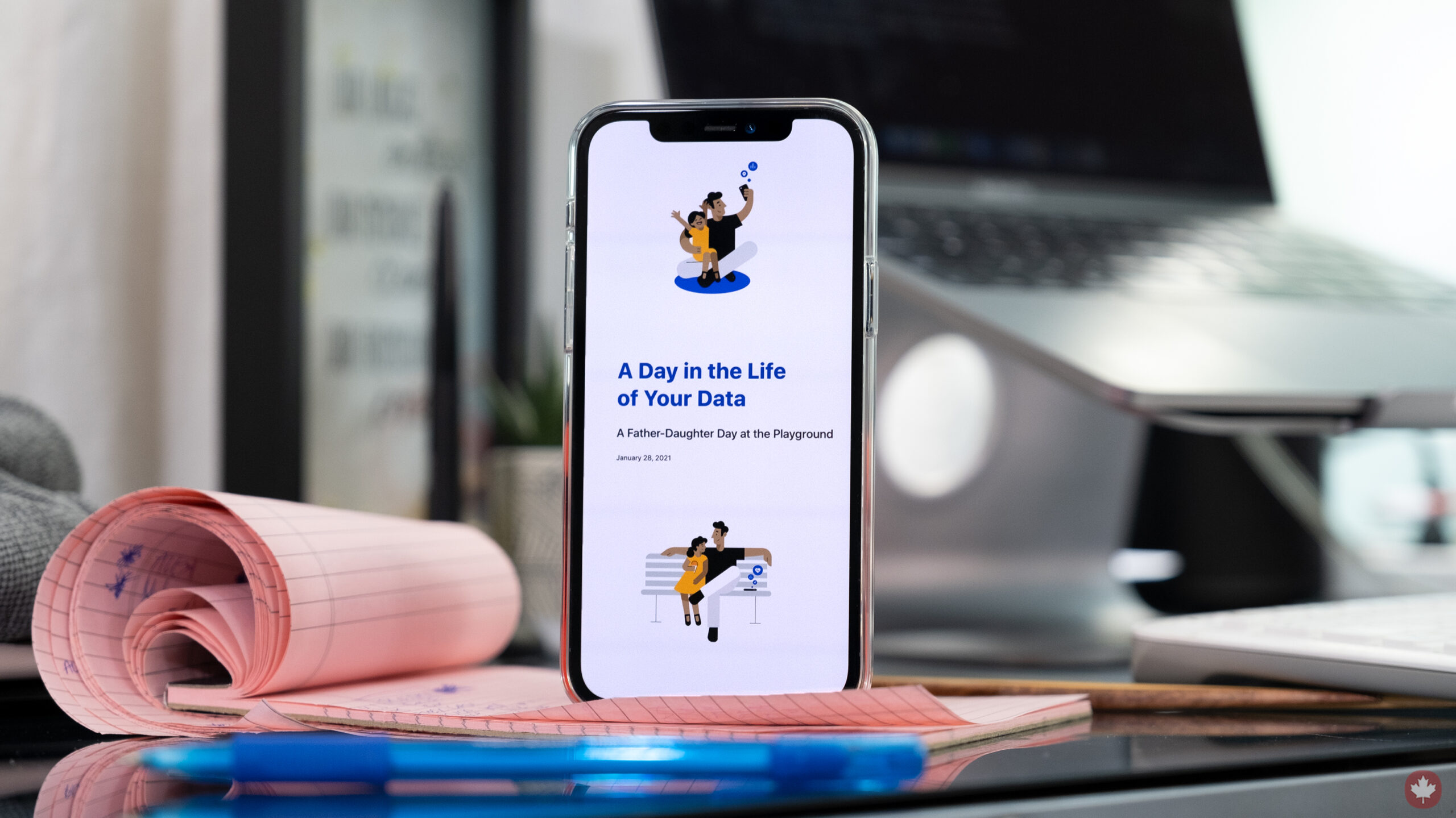
To celebrate Data Privacy Day, Apple has shared an easily digestible report called ‘A Day in the Life of Your Data‘ that outlines how people are tracked online and what they can do to protect themselves.
The report focuses on a dad and his daughter on an afternoon park date to explain to people how everyday tasks can lead to several trackers logging information about you and your loved ones. It’s worth reading since it breaks down many common ways users are tracked online in easy to read and relatable sections.
Beyond just outlining the dad’s trip to the park, there are also side notes and an FAQ at the end that aim to help people who are not well-versed in tech or advertising language understand where their data goes and how they might be able to control it. The report isn’t long and reminds me of Jumbo’s Privacy education app, another great plain language resource for learning about online safety.
Many people don’t realize there is a large $277 billion USD (roughly $354 billion CAD) per year industry built around monetizing and selling user data collected from online platforms.
In the report, Apple mentions that one data broker has info on 700 million consumers worldwide, and some profiles can have as many as 5,000 characteristics to target ads with. This potentially means that companies you aren’t aware of and have never knowingly interacted with, have profiles of you filled with things like your location, what stores you go to, what sites you visit, what your interests are and more.
These attributes aren’t always correct since they’re based on user browsing trends and other data that could be skewed or change over time. This even points out that perhaps ad tracking isn’t that effective of a way to advertise.
These brokers might not know your name, but they can potentially know enough about you that it wouldn’t be impossible to find out. They don’t know your name because they track you with a number called an ‘Identifier for Advertisers’ (IDFA). This number tries to keep users anonymous, but since modern tracking is sophisticated and includes location data and digital fingerprinting, it often doesn’t help.
One of the interesting points raised in the report is that credit card companies also track your data and sell it to apps and websites. This means that even if you don’t bring your phone with you to dinner, but you pay with a credit card, you’re still being tracked.
At the end of the report, Apple outlines how some of its apps and services use other methods to advertise to you so your data isn’t compromised. For example, Safari includes a built-in feature that prevents companies from tracking you across the web by blocking your IDFA, and Apple Photos performs all of its search functions on-device and doesn’t send data to the cloud.
In other Apple-related privacy news, the tech giant is getting ready to launch a new feature for iOS 14 that blocks trackers from apps on iPadOS and iOS.
MobileSyrup may earn a commission from purchases made via our links, which helps fund the journalism we provide free on our website. These links do not influence our editorial content. Support us here.


